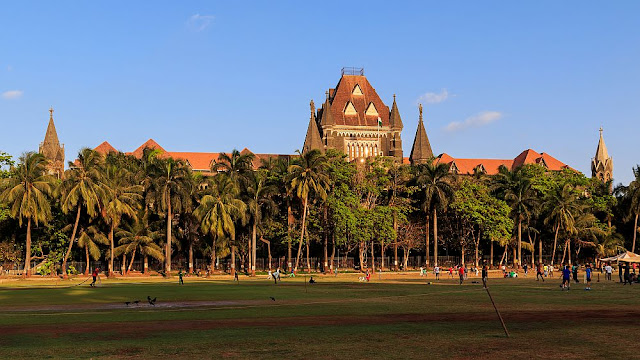The Process For Flat Owners To Form Own CHS
Legally Speaking - Property and Housing Laws | By Solicitor Gajanan Khergamker
How can flat purchasers initiate a procedure to form a Cooperative Housing Society? How much is the builder involved in the process?
— Amit Joglekar
Very often many flat purchasers don’t receive any cooperation from their respective builders to help them begin the procedures towards the formation of a registered cooperative housing society. In such situations, flat purchasers should take the initiative and initiate procedures to form a cooperative housing society themselves.
Before submitting a registration proposal without any cooperation from the builder, flat purchasers should first draft a letter to the builder indicating their intention to form a cooperative housing society.
A copy of such a letter should also be addressed to the Deputy or Assistant Registrar of Cooperative Societies of the Ward where such a building is located. The copy should include a request to call upon the concerned builder to furbish an explanation regarding his failure to comply with the provisions of the Maharashtra Ownership Flat Act, (MOFA) 1963.
The chief promoter then has to submit a number of documents, statements, undertakings etc., along with the registration proposal. The registration authority should be satisfied:
a) The proposed society has complied with the provisions of the Maharashtra Cooperative Societies Act, 1960, the Maharashtra Cooperative Societies Rules, 1961 and any other laws that are in force for the time being;
b) The proposed society has complied with the policy directions issued by the state government under section 4;
c) The bye-laws being proposed are not contrary to the Act or Rules.
Once the proposal procedures are complete and the registration authorities are satisfied, the registering officer is under an obligation under section 59(1) of the MOFA to register such proposed societies within two months of the lodging of the application with the registering authority.
If the registration is not completed within two months, within fifteen days from the expiration of the time limit, the registration authority is under an obligation to forward the proposal for registration to the government for further action.
After a society is registered under Section 9 of the Maharashtra Cooperative Societies Act, 1960 the registration authority should grant a certificate of registration to the society along with a certified copy of its bye-laws.
LEGALITY OF OWNERSHIP
What is the procedure for clearing out all legal discrepancies in the title of a property before one invests money in it? Is it a lengthy one that needs the involvement of a lawyer? Could they create any problems in the future vis-à-vis the legality of the ownership or possession?
— Shanti Goel
There are a few factors need to be fulfilled in order to obtain a clear title to a property. The owner of the property has to firstly produce all the originals of the title deeds in his possessions after which records pertaining to the property have to be searched from the specific offices maintaining them.
Even slight discrepancies in the title of the property can lead to immense problems in the future vis-à-vis rights that arise from ownership and possession.
Like public notices that have to be issued in newspapers inviting claims or objections from anyone affected in respect of the said transaction. Following the public notice, if an objection is lodged, the person should be asked to substantiate it within a stipulated period of time or else, ignored.
For a transaction to be considered valid in a court of law, it must be registered accordingly. The registration of a document serves as a notice of the transaction to those affected by it. The seller has to clearly mention in unequivocal terms that there are no encumbrances or mortgages on the property being sold. Very often, several months after the deal has been struck, an unassuming buyer realises that the property purchased has been mortgaged to someone else and that he has been duped.
Often, in order to save on a little money, a buyer may ignore the registration aspect of a document. If a document isn’t registered properly, it fails to confer any title to the buyer who could land with several problems.
However, mere registration of the document doesn’t affirm its genuineness. Both the parties need to have executed the document and shouldn’t be in dispute with regard to the transaction. The sole registration of a document very often is commonly misunderstood as being evidence of a transaction.
This, however, doesn’t provide whole and complete proof of execution which needs to be fulfilled.
Incidentally, for premises purchased in a registered co-operative society, a buyer needs to check a few documents before going in for the deal. The share certificate issued by the society to the owner has to be checked in order to authenticate the owner’s credentials and standing in the society. Very often, the seller could himself be a sub-tenant in a society flat with the actual owner oblivious of the transaction. In that case, the seller would be unable to produce the share certificate in his favour.
In case, the deed has been lodged for registration, the seller should be asked to produce certified true copies of such conveyance, sale deeds and other documents along with the original receipt of the sub-registrar where the document has been lodged for registration.
In case, a buyer opts for a flat in a society that hasn’t been registered, he should look for previous chain of agreements with past owners; Original stamped receipts of payments issued to the previous and present owners by the builder/development authority/society and transfer authorisation papers from the respective authority as well as a copy of approved plan and occupancy certificate issued by the civic body.
This weekly legal column has been generated for The Draft News, Without Prejudice and In Good Faith. To book a Legal Consultation, Call 8080441593.
Follow @TheDraftWorld on Twitter




























